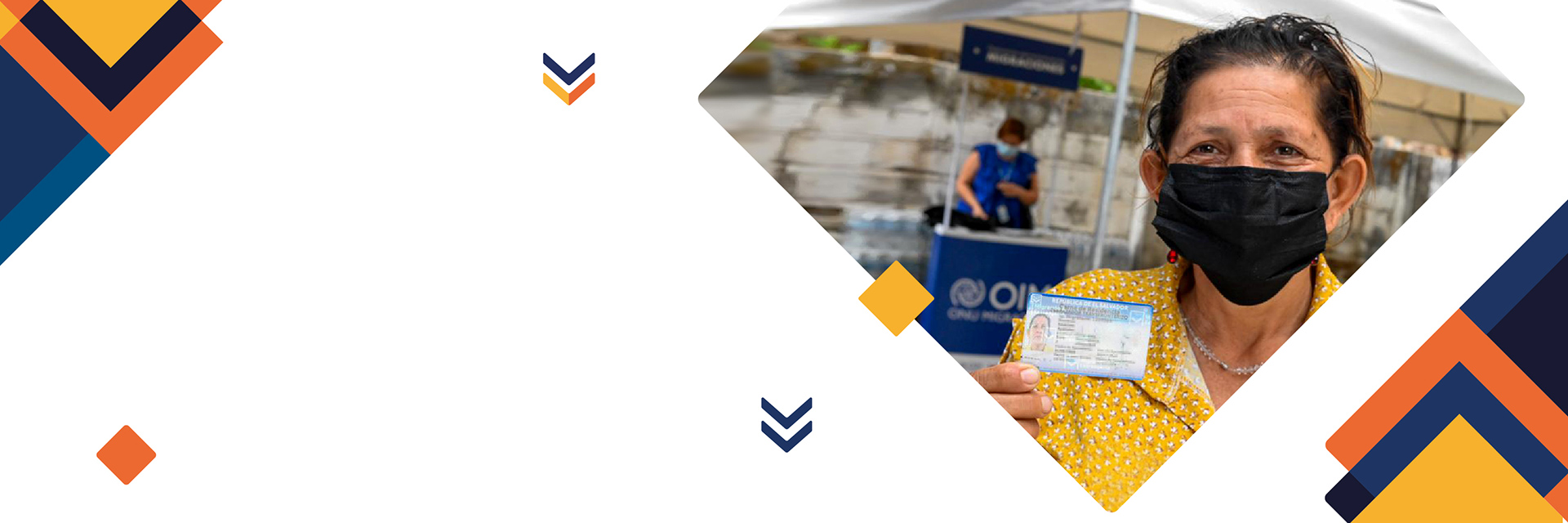Migration policy and governance refer to the "combined frameworks of legal norms, laws and regulations, policies and traditions as well as organizational structures (subnational, national, regional and international) and the relevant processes that shape and regulate States’ approaches with regard to migration in all its forms, addressing rights and responsibilities and promoting international cooperation" (IOM, 2019).
Countries often have migration governance frameworks, most of which focus on emigration and immigration aspects. This represents an opportunity to improve migration governance for governments to adopt policies that address all dimensions or domains of international migration in a holistic and comprehensive manner and contribute to sustainable development.
IOM has extensive experience in promoting policy coherence, capacity development and supporting the formulation of comprehensive and evidence-based migration policies (including legislation as well as regulatory and institutional frameworks). IOM bases its cooperation with governments on global frameworks, such as:
- 2030 Agenda and Sustainable Development Goals (SDGs)
- Global Compact for Safe, Orderly and Regular Migration (GCM).
- Migration Governance Framework (MiGOF).
IOM, as the main United Nations agency on migration, and coordinator and secretariat of the United Nations Migration Network, has a fundamental role in promoting compliance with the objectives of the GCM and in guiding and inspiring the design of migration policies based on the principles and approaches of the Compact: the pan-social and pangubermantal approach.
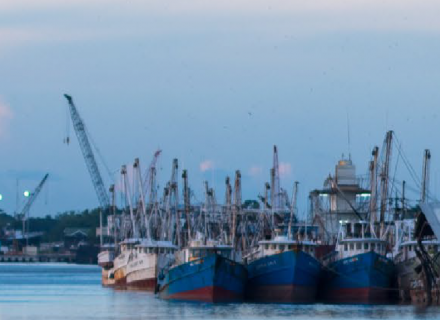
Summary report. Planning for prosperity. Labour migration and Guyana's emerging economy
While Guyana has made economic and social progress over the past three decades, it is imperative that policymakers adapt and adjust the policy framework, institutions and legislation for the country to realize its full growth potential. An example which foreshadows the changes to be seen in Guyana can be observed by the increase in the number of migrant workers.
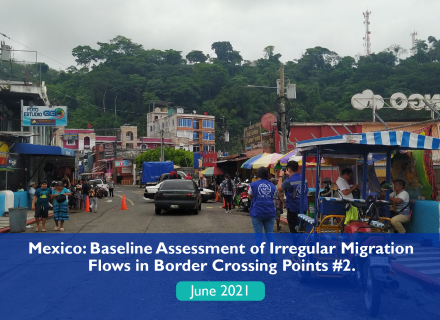
Mexico-Baseline Assessment Of Irregular Migration Flows And Mobility Monitoring In Border Crossing Points Within The Context Of COVID-19 #2 (June, 2021)
According to the Statistical Bulletin of the Migration Policy Unit, in June 2021 Chiapas saw 2,681 events where foreigners were returned by the immigration authority: 1,960 men and 370 women of Central American nationalities. The DTM (Displacement Tracking Matrix), through the sub-components ow monitoring and mobility tracking, is a methodology whose purpose is to quantify and analyze trends in migration ows and the presence of migrants in specic locations during a specic period.
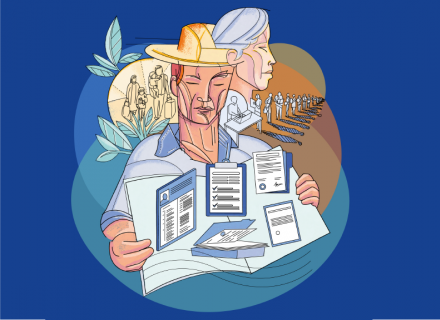
Regional Study: Migratory regularization programmes and processes
The study presents a contextualization of regularization programs and processes in North America, Central America and the Dominican Republic. It identifies the initiatives conducted for migratory regularization and their implementation, as well as the general characteristics and challenges at the regional level for their adequate management. For example, facilitating migrants' access to these programs. Finally, it analyzes the areas of opportunity and best practices of migratory regularization in the region, proposing concrete recommendations for the phases of creation and implementation of regularization programs and processes, the renewal of migratory categories and the integration of regularized migrants.
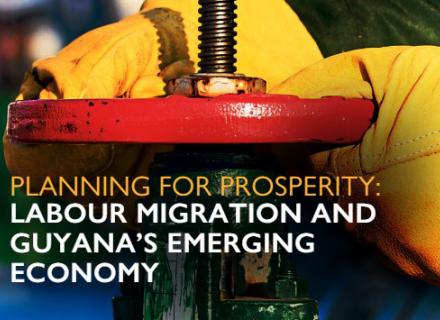
Planning for prosperity: labour migration and Guyana's emerging economy
Due to an emerging oil and gas sector, the Guyana's economic growth is expected to contribute to important migration flows, including the return of Guyanese nationals and their families in the diaspora, nationals from other Caribbean Community (CARICOM) States, nationals from States looking for investment opportunities, and internal flows of Guyanese nationals in the interior. This study reflects IOM’s continuing commitment to support the Government of Guyana in the development of a comprehensive national migration policy and systems for the ethical recruitment of workers.
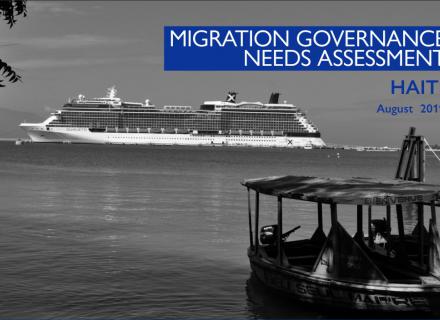
Migration governance needs assessment. Haiti
The purpose of this report is to provide an overview of migration governance policies and capacities, as well as to propose recommendations for the Haitian government. However, this document is not only intended to present basic information on the migration context in Haiti, but rather to provide a source of information for the government, IOM and other stakeholders. Trouvez le rapport en français ici.
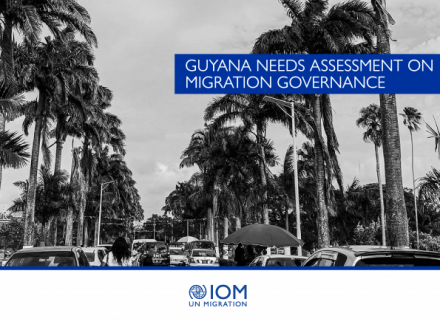
Guyana Needs Assessment on Migration Governance
This Migration Governance Needs Assessment presents a panoramic view of the current state of migration governance in Guyana. Through concrete evidence and data, combined with the inputs of regional stakeholders, it provides a larger perspective on opportunities for strengthening migration governance.
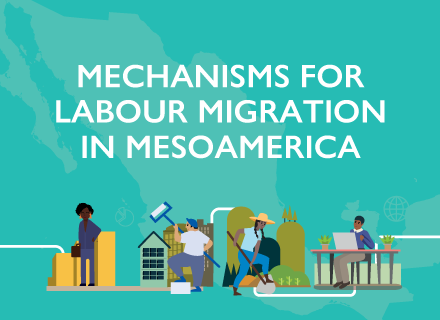
Mechanisms for labour migration in Mesoamerica
Recognizing the importance of labour migration flows for countries of origin and destination, the governments of the region have developed actions aimed at facilitating and regulating migratory movements for labour purposes. This study analyzes the existing mechanisms classified into four types: bilateral agreements, memoranda of understanding, temporary labor schemes, and free trade agreements with labour migration clauses.
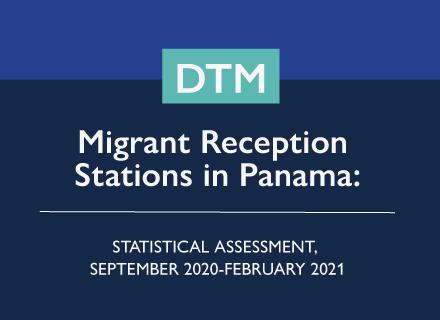
Panama- Emergency Tracking: Migratory Receiving Stations-COVID 19 Pandemic: Statistical Assessment, September 2020-February 2021
On March 20, 2020, Panamanian authorities declared the health emergency because of COVID-19 in the country. Between March 16, 2020 and January 29, 2021, land borders remained closed to prevent the spread of COVID-19, therefore greatly affecting the Controlled Flow Operation, an agreement previously reaches between Panama and Costa Rica to promote safe, orderly and regular migration. This report gathers statistical information about population lodged at migratory reception stations between September 2020 and February 2021.
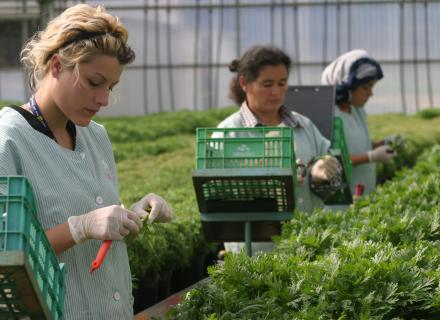
Infosheet: global policy network to promote ethical recruitment
IOM's new Global Policy Network to promote ethical recruitment is focused on addressing shortcomings in regulation and enforcement that can exacerbate vulnerabilities and lead to gaps in the protection of migrant workers. Download the infosheet that describes the pillars on which the network's activities will be conducted.
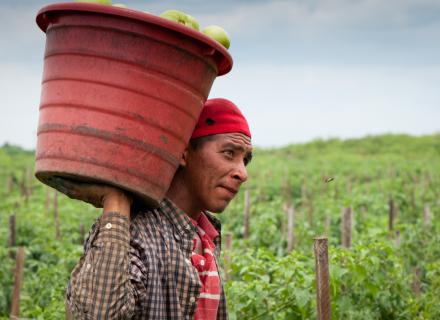
The Montreal Recommendations on Recruitment: A Road Map towards Better Regulation
This resource presents policymakers and regulators with practical guidance and ideas to improve regulation and oversight of international recruitment and protection of migrant workers. Thus, it is an important milestone in global efforts to promote ethical recruitment.
